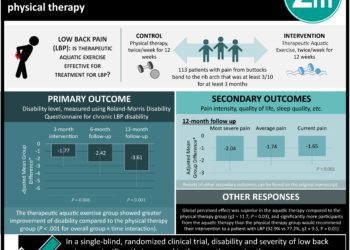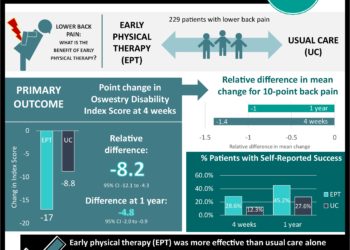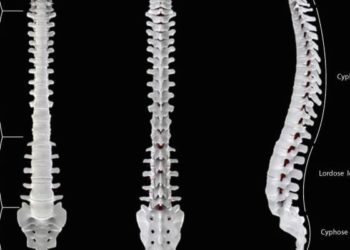Quick Take: Arthroscopic hip surgery compared with physiotherapy and activity modification for the treatment of symptomatic femoroacetabular impingement: multicentre randomised controlled trial
Patients with femoroacetabular impingement (FAI) have a predisposition towards premature joint degeneration. While physiotherapy and modified activity represents the principal treatment for symptomatic FAI, arthroscopic surgery is being increasingly adopted as part of reshaping the hip joint, managing damage to the labrum and cartilage, and improving pain and function. The efficacy of hip surgery for this indication, however, has not been well studied. In this randomized controlled trial, 222 patients age 18 to 60 years with symptomatic FAI were randomized to receive arthroscopic hip surgery or a program of physiotherapy and activity modification to compare these interventions in terms of their improvement in patient-reported outcomes, specifically activities of daily living at 8 months of follow-up. Researchers found that the mean hip outcome score activities of daily living subscale (HOS-ADL) in the arthroscopic surgery group was 10.0 points (95% CI 6.4 to 13.6) higher than that seen in the physiotherapy group at 8 months post-randomization. Clinically important improvement within the individual, defined as an increase in HOS-ADL of at least 9 points, was reported in 51% of participants allocated to the arthroscopic surgery group and 32% of participants in the physiotherapy group. The proportion of patients who achieved their expectation in terms of HOS-ADL at follow-up was 31% in the arthroscopic group compared to 15% in the physiotherapy group. This study therefore shows that arthroscopic hip surgery likely results in superior outcomes in terms of activities of daily living and physical functioning in FAI patients when compared to non-interventional approaches including physiotherapy. Further research is needed to identify patients most likely to benefit from such an intervention.
Click to read the study in BMJ
Image: PD
©2019 2 Minute Medicine, Inc. All rights reserved. No works may be reproduced without expressed written consent from 2 Minute Medicine, Inc. Inquire about licensing here. No article should be construed as medical advice and is not intended as such by the authors or by 2 Minute Medicine, Inc.







